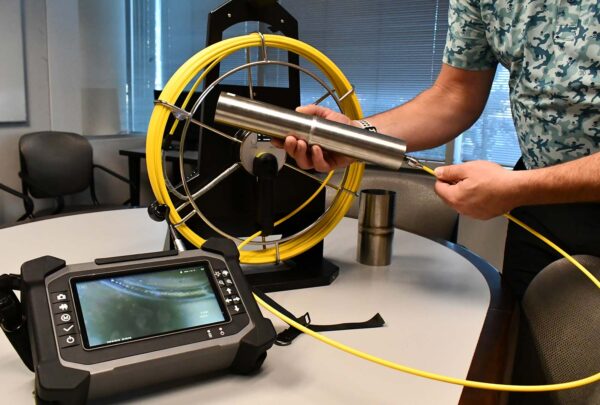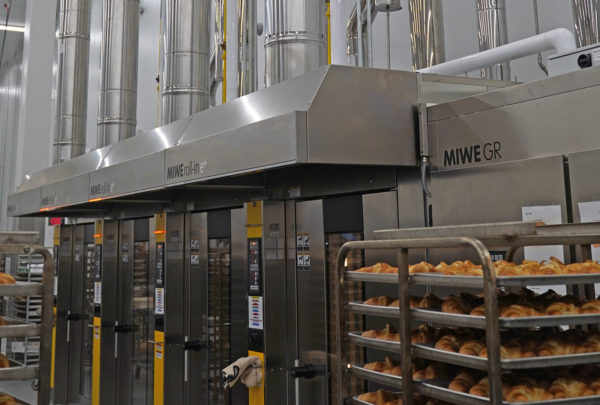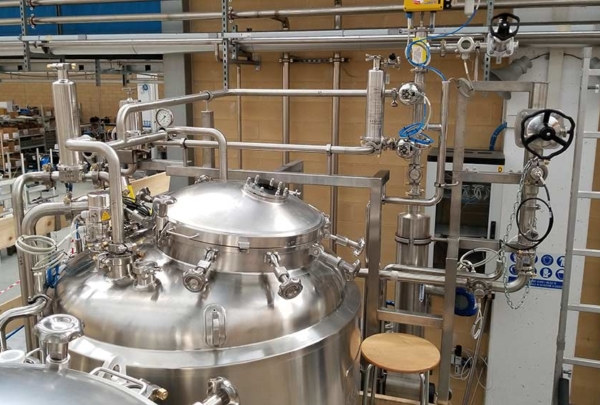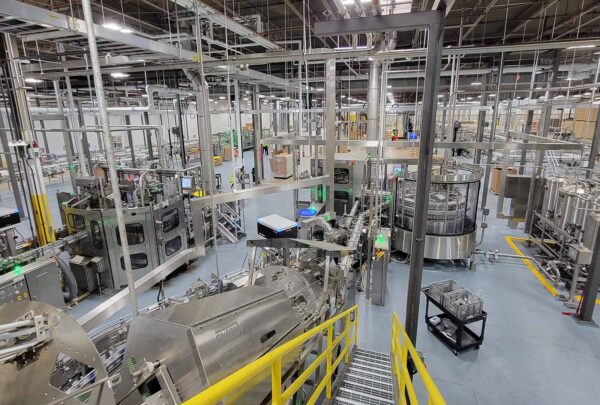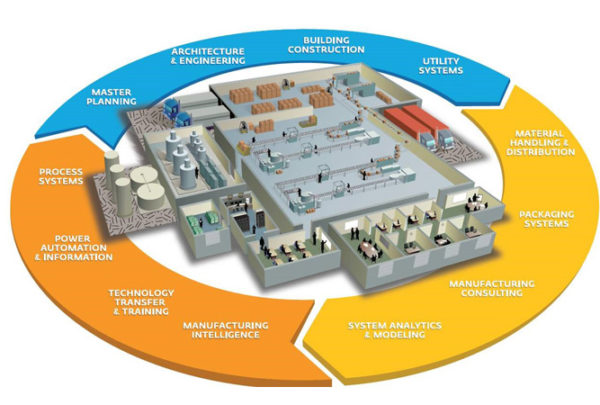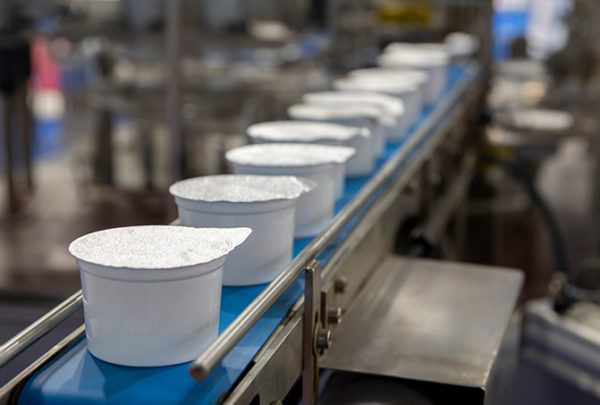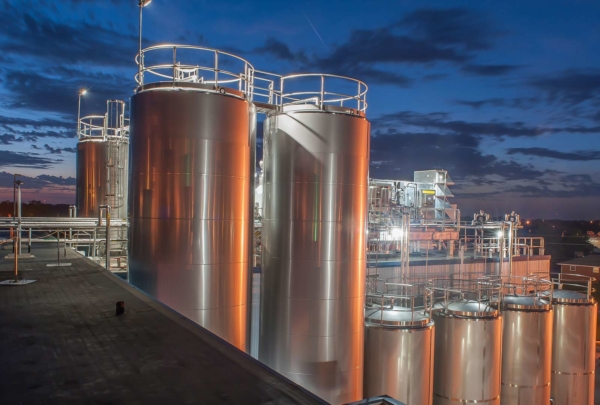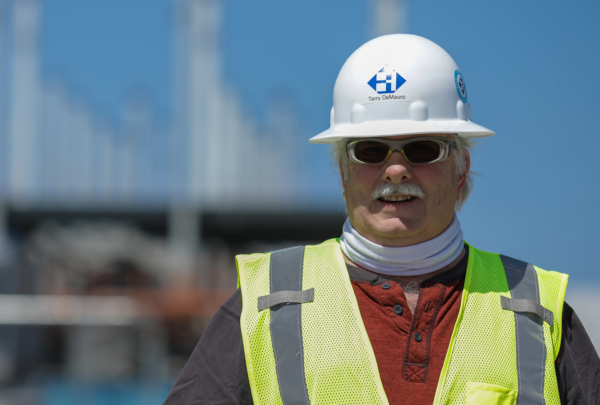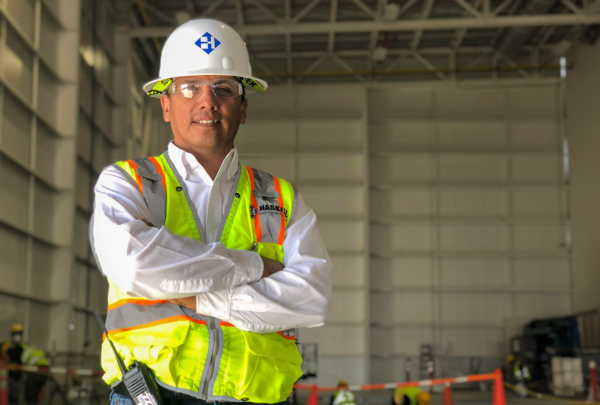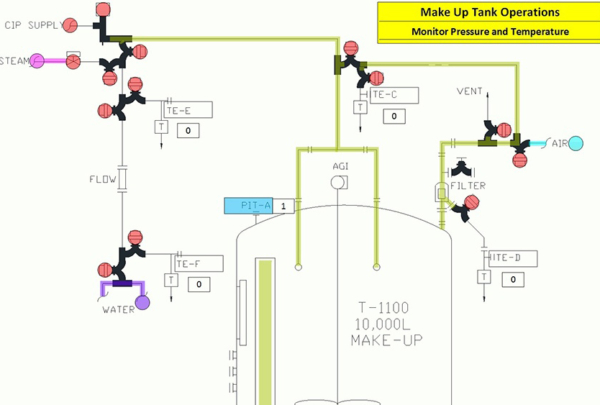Construction safety training, such as fall protection and proper protocols for excavation and ladder safety, is a common requirement for anyone who steps foot on a job site. In the same way, process projects depend on a keen awareness of safety practices to guarantee safety and success.
Process systems and their surrounding environments pose numerous types of hazards. Potential sources of energy generated by pressure, temperature and chemicals can pose a danger, as can the moving parts of equipment and vehicles, such as forklifts.
As a leader in engineering, integrating and commissioning complex process systems, particularly for cleaning and sterilization practices for the Food & Beverage and Pharmaceutical industries, Haskell’s Process Systems team has vast experience keeping team members, clients and contract partners safe in dynamic industrial settings.
The following is a primer on potential hazards and steps to alleviate or avoid them from Design Director Mike Byron, who is a process lead at Seiberling, a Haskell Company.
Pressure
You cannot see what is happening inside piping and equipment just by looking at it. During production, systems are commonly opened, so it is vital to consider the possibility of increased levels of pressure and follow proper procedures when opening a system.
- Ask if the system needs to be opened or if there an alternate approach to resolve the issue?
- If the system does need to be opened, ensure that the system is isolated and vented.
- Check Human-Machine Interfaces (HMIs) to make sure no processes are active.
- Check pressure gauges, if available.
- Use Lock Out, Tag Out (LOTO) when appropriate.
Temperature
Many process operations involve the heating or cooling of the product, which is not immediately apparent to the naked eye.
- Be aware of your surroundings and what is going on within the plant.
- Check HMIs for temperatures and active processes.
- Identify temperature safety risks with clear caution labeling, if possible.
- Wear personal protective equipment (PPE), such as gloves and long sleeves.
- During the design phase, identify lines that pose a temperature safety risk, and insulate them during construction.
Chemicals
Process and cleaning operations often rely on chemicals. Chemicals can be dangerous if inhaled or if they contact exposed skin.
- Read the Safety Data Sheets (SDS) of all chemicals you may contact to identify known chemical safety risks.
- Be aware of safety shower, eye-wash and diphoterine locations throughout the plant.
- Wear proper PPE.
- Treat unknown leaks with caution and test before cleaning.
Moving Parts
Many pieces of equipment operate with moving parts, such as pumps, tank agitators and conveyors. These moving parts can pinch or catch loose clothing, hands, or hair.
- Identify known moving parts safety risks with clear caution labeling.
- When possible, use guards to prevent contact with moving parts.
- Use proper LOTO procedures when working on equipment with moving parts.
- Wear proper PPE.
Forklift Traffic
Forklift trucks are a routine presence during plant operations, and care must be taken to keep pedestrians safe.
- Avoid distractions, such as mobile phones, documents or drawings, while walking.
- Use globe mirrors to provide visibility around blind corners and intersections.
- Use pedestrian doors whenever possible.
- Walk in designated walkways.
- Wear proper PPE.
Slips, Trips, and Falls
Process facilities often have wet floors. To prevent slips, trips, and falls, consider the following:
- Good housekeeping: Squeegee standing water to drains; keep drains clear of debris; keep items picked up off the floor: and be conscious of surroundings and wet floor signs.
- Design considerations: Route drain piping to a floor or hub drain; eliminate trip hazards in piping design; and coordinate drain sizing with facilities design to keep up with process needs.
- Wear proper PPE, including good traction on shoes.
Communication is Key
Include a “safety minute” safety topic at the beginning of each meeting to keep safety at the forefront of every discussion.
- Make people aware of what is happening each day and any associated safety risks.
- Post signs and labels to identify risks.
- Check HMIs to see what processes are occurring or have recently occurred before doing any work.
- Ensure that workers are familiarized through a site-specific safety orientation.
- If you aren’t sure of the appropriate PPE for a task or facility, then ask.
- Ask plant personnel about their stop-work authority plan.
- If you see something, do something.
All sites are different with different priorities and concerns. These few risks are common across industries and should be considered when reviewing safety.
 About the author: Mike Byron is a Design Director – Process Lead with Seiberling, a Haskell Company, and has been with the company since 1993. Mike is primarily involved in the design of Process/CIP systems for the liquid processing industries. Current responsibilities include overseeing project designs for liquid processes and leading process design associates in the Beloit, Wisconsin, office. He can be reached at michael.byron@haskell.com.
About the author: Mike Byron is a Design Director – Process Lead with Seiberling, a Haskell Company, and has been with the company since 1993. Mike is primarily involved in the design of Process/CIP systems for the liquid processing industries. Current responsibilities include overseeing project designs for liquid processes and leading process design associates in the Beloit, Wisconsin, office. He can be reached at michael.byron@haskell.com.

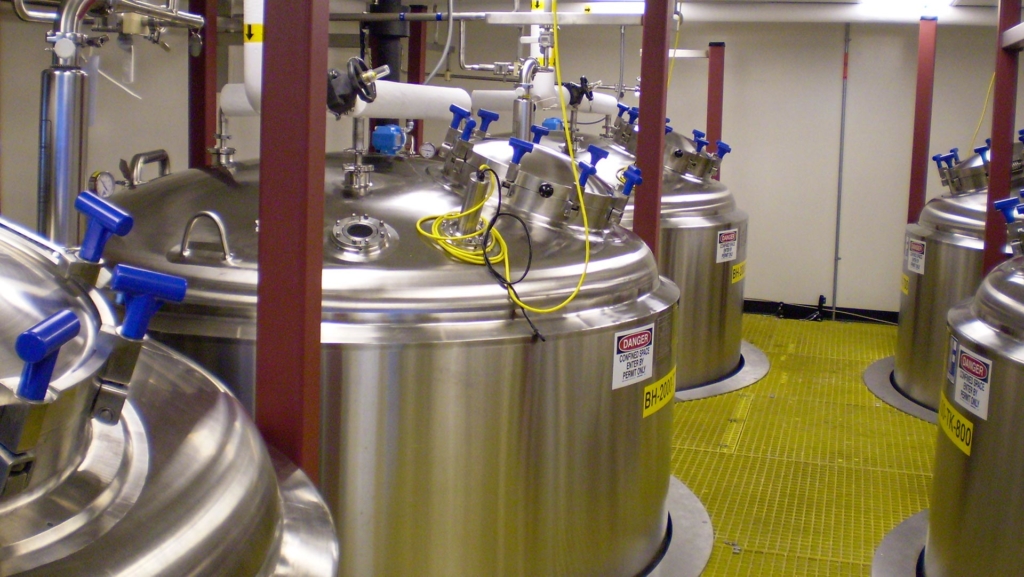
 About the author: Mike Byron is a Design Director – Process Lead with Seiberling, a Haskell Company, and has been with the company since 1993. Mike is primarily involved in the design of Process/
About the author: Mike Byron is a Design Director – Process Lead with Seiberling, a Haskell Company, and has been with the company since 1993. Mike is primarily involved in the design of Process/

